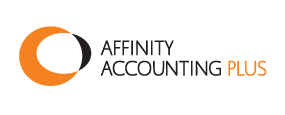Businesses can claim a tax deduction for expenses on work related travel. However there are additional issues that need to be considered when a holiday is planned to coincide with the work trip, or there is so other private activity during the trip (e.g. catching up with family and friends).
Tax deductible expenses
A business can claim a deduction for travel expenses related to the business including:
- airfares
- train, tram, bus, taxi, or ride-sourcing fares
- car hire fees and the costs incurred (such as fuel, tolls and car parking) when using a hire car for business purposes
- accommodation
- meals, if away overnight.
To claim expenses for overnight travel, the person must have a permanent home elsewhere and the business must require the person to away from home overnight.
Non-tax deductible expenses
The following expenses cannot be claimed as a tax deduction:
- a holiday or visit to family or friends that is combined with the business travel
- the expenses associated with taking a family member on the trip
- souvenirs and gifts
- sightseeing and entertainment
- visas, passports or travel insurance.
Claiming for airfares
The tax-deductibility of airfares may be reduced when business and private travel is combined.
Assume a person travels to London for a two-week trade show and stays a few extra days for sightseeing. The ATO says that if the “primary purpose” of the trip is for business, the entire cost of the return airfares is a tax deduction as well as related costs like travel to and from the airport. In this example, the additional sightseeing is purely incidental.
If the person is planning a significantly longer holiday so that the primary purpose of the trip is not just the business activity, the airfares would need to be apportioned between business and private travel. And if the primary purpose is clearly private with some incidental work activities, the airfares are generally not tax deductible.
Tax treatment of accommodation expenses
Tax deductions for accommodation are limited to those nights that the person is required to be away for business purposes. This will depend on the facts of the trip.
In the London example above, a tax deduction can’t be claimed for accommodation, meals and transport costs for the few extra nights involved in sightseeing even though the full airfares are tax deductible.
On the other hand, if the person has to be away for an extended period of time and some days don’t involve work activities, the full accommodation costs may still be tax deductible.
The ATO gives the example of being interstate for two full weeks to complete a project on-site for a client. The accommodation costs on the middle weekend (when the person is not working at the client’s site) would still be deductible. Of course, private weekend activities like sightseeing, entertainment and dinner with friends would not be tax deductible.
How to claim employee travel expenses
For employee related travel (including working directors), the business must actually pay for the travel expense to be able to claim it as a tax deduction. The business can pay for the expense by:
- paying it directly from a business account
- paying a travel allowance to the employee
- reimbursing the employee for their expenses.
Fringe benefits tax (FBT) may apply if the business pays for or reimburses the employees for their travel expenses where there is a private component of the trip. There are certain exemptions and concessions that may apply to reduce the FBT liability. For example, the business won’t have an FBT liability if it reimburses an employee for their travel expenses to attend a work conference, which the employee would have been able to claim as an outright deduction if not reimbursed.
The business will be liable for FBT if the employee extended their travel for private purposes and the employee was reimbursed for these private costs. When FBT is paid on the private component of the travel, the business is entitled to claim 100% of the costs of the trip.
Where the business pays employees a travel allowance or a living-away-from-home allowance, different tax considerations apply.
Travel diaries
(i) Sole traders and partners in a partnership
Where a sole trader or a partner in a partnership travels for six or more consecutive nights, they must keep a travel diary or similar document before the travel ends or as soon as possible afterwards. The travel diary must record the following details:
- the date and approximate time the business activity began
- how long the business activity lasted
- the name of the place where the business activity occurred.
The travel diary can be in any format as long as it contains sufficient detail to justify the claim.
(ii) Companies and trusts
If the business is run through a company or trust structure, the ATO says it’s not compulsory for an employee to keep a diary, but it’s highly recommended.
Record-keeping
Businesses must keep records for five years to substantiate business travel expenses including:
- tax invoices
- boarding passes
- tickets
- travel diaries
- details of how any private portion was determined.
Disclaimer
This information is provided as a guide only and is not intended to constitute advice whether legal or professional. You should obtain appropriate advice concerning your particular circumstances.

